Unexpected deposits from the Department for Work and Pensions (DWP) can be confusing, especially if you were not expecting any money or are unsure of your eligibility.
These payments may seem like a financial lifeline or raise concerns about errors or overpayments. In the UK, where millions rely on benefits such as Universal Credit, PIP, and other state supports, understanding why these funds appear is essential. This blog explores the common causes of unexpected DWP payments and what steps you should take if you receive one.
What Is an Unexpected DWP Payment and Who Sends It?
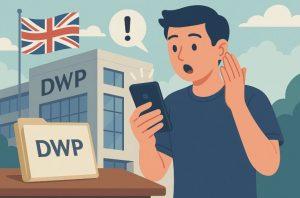
Understanding the Role of the DWP
The DWP, short for the Department for Work and Pensions, handles a wide range of public support services in the UK, including financial assistance, retirement benefits, and child maintenance responsibilities.
It disburses billions annually to support eligible residents through benefits like Universal Credit, Personal Independence Payment (PIP), and Jobseeker’s Allowance.
Nature of Unexpected Payments
Unexpected DWP payments are deposits made into an individual’s bank account without prior notice. These may not align with usual payment schedules, causing recipients to wonder if the payment is legitimate, accidental, or fraudulent.
Could It Be a Backdated Benefit or Missed Payment?
Back Payments from Delayed Claims
One of the most common reasons for an unexpected DWP deposit is a backdated benefit. This typically happens when a claim is processed late or a decision is revised.
For instance, if you recently applied for Universal Credit and your claim took longer than expected to process, you might receive a lump-sum back payment covering weeks or months of owed benefits.
Benefit Reassessments
In other cases, benefits such as PIP are reassessed after appeal or tribunal decisions. If the reassessment increases the award or approves a previously rejected claim, the DWP may issue a backdated payment without a formal warning.
Is It an Error or a System Glitch by DWP?
Payment Mistakes and Duplicate Credits
While rare, DWP system errors do occur. In 2023, reports highlighted instances of duplicated payments due to system bugs during Universal Credit rollouts. These errors are typically followed by letters requesting repayment.
Misidentified Accounts
Occasionally, DWP funds may be transferred to the wrong account due to outdated records or incorrect banking information. While these issues are usually rectified quickly, they can result in temporary confusion for recipients.
How Can You Check If the DWP Payment Is Legitimate?
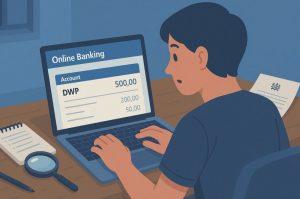
Checking Bank Statement References
Every DWP payment includes a reference code, often containing abbreviations like DWP UC (Universal Credit), DWP PIP, or DWP JSA. Cross-referencing these codes with your claim or award letter is the first step to confirming the payment’s source.
Contacting DWP Directly
The most reliable way to verify a payment is by calling the DWP or accessing your Universal Credit online account. Make sure to have your National Insurance Number and payment reference ready for quick identification.
Should You Spend the Unexpected Money or Report It?
Legal and Ethical Implications
If you are unsure about the source of the DWP payment, do not spend the money. Using funds that were deposited in error could be considered unlawful, and you may be required to repay it, sometimes with added penalties or interest.
Government Recommendations
The DWP encourages recipients to report any unknown payments promptly. They may investigate and provide written confirmation of whether the funds are yours to keep.
What Happens If You’re Asked to Repay the DWP Payment?
The Repayment Process
If DWP determines that a payment was made in error, they will issue a formal letter of overpayment. This letter outlines the amount owed, the reason for the repayment, and the method to repay.
Repayment Options
Repayments can often be made through instalments. If you’re currently receiving benefits, the DWP might deduct a portion of your future payments until the balance is cleared.
Are There Other Reasons You Might Receive a DWP Payment?
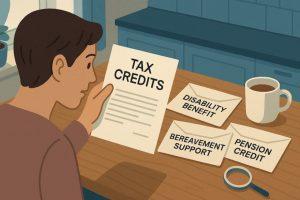
Tax Credit Transfers
Since HMRC tax credits are gradually migrating to Universal Credit, you might receive a DWP payment related to this transition. The shift sometimes involves a final reconciliation payment or backdated entitlement transfer.
Additional Grants or Support Payments
The government occasionally issues one-off support payments during financial crises. Examples include Cost of Living Payments or Cold Weather Payments, which might appear unexpectedly but are legitimate.
Summary of Possible DWP Payment Reasons
Reason for Payment |
Description |
Action Required |
| Backdated benefit payment | Funds owed from a delayed or revised claim | Usually safe to keep |
| Cost of Living Support | One-off government support during economic hardship | No action needed |
| Universal Credit Transition | Adjustment from legacy benefits or tax credits | Monitor your UC account |
| System error or overpayment | Mistaken deposit, often followed by a repayment request | Contact DWP immediately |
| Benefit reassessment | Post-appeal or tribunal decision resulting in revised payments | Verify and retain written confirmation |
| Bereavement or support payment | DWP grants or payments for bereaved families | Confirm eligibility |
| HMRC-related transfer | Tax credit reconciliation settled by DWP | May require clarification with both bodies |
Can You Be Penalised for Keeping an Incorrect DWP Payment?
Legal Risks and Consequences
Keeping a DWP payment you are not entitled to especially after being informed it was made in error can have serious consequences. Under UK law, knowingly retaining incorrect public funds may be considered benefit fraud, which is a criminal offence.
The DWP takes such matters seriously and has systems in place to investigate misuse. If fraud is suspected, you may receive a compliance interview under caution and could face fines, sanctions, or even prosecution. In less severe cases, the DWP may simply reclaim the amount via deductions or ask for a lump-sum repayment.
How to Protect Yourself?
The best course of action is always transparency. Contact the DWP as soon as you notice an unexpected payment, especially if you’re uncertain about its legitimacy. Keep a record of your communications, including emails or letters sent and received, for your own protection.
Are DWP Payments Ever Made as Goodwill or Compensation?
When DWP Offers Compensation
In rare cases, the DWP may issue a payment as a form of compensation or goodwill gesture. This happens when:
- There’s been an undue delay in processing a benefit claim
- You’ve suffered distress or financial hardship due to administrative errors
- The department has breached service standards or legal obligations
Such payments are not considered benefits but discretionary compensation. They are usually accompanied by a letter explaining the reason and are not meant to be repaid.
How to Know if You’ve Received One?
If you’ve lodged a complaint with the DWP and received a follow-up payment, check any correspondence for phrases like “in recognition of inconvenience caused” or “compensation for delay.” If no explanation is provided, you should call to clarify the purpose of the payment.
How Often Do DWP Payment Errors Occur in the UK?
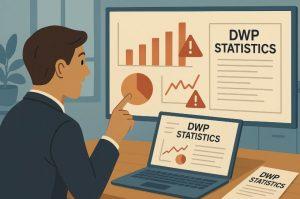
Frequency and Statistics
DWP overpayments are not uncommon. According to the UK Government’s 2024 annual report on benefit expenditure and error, around £8.3 billion was overpaid due to official and claimant errors. A significant portion of this came from Universal Credit, which has complex eligibility and payment systems.
Many of these overpayments are due to:
- Delays in updating earnings or living arrangements
- Incorrect award calculations
- IT and system migration issues
- Manual processing errors
While most recipients never encounter such issues, the volume of total benefit recipients (over 20 million people in the UK) means that even a small percentage results in thousands of mistaken payments annually.
DWP Response
The department continuously updates its systems to reduce such mistakes, but with changes in policy and digital transitions, errors may still arise. The key takeaway is that the recipient is still responsible for clarifying unexpected funds.
Conclusion
Receiving an unexpected DWP payment can bring both relief and confusion. Whether it’s a backdated award, a government grant, or an error, it’s important to approach the situation carefully.
Always confirm the legitimacy of the deposit before using the funds. Prompt communication with DWP will ensure you handle the payment correctly and avoid future complications.
Resource: https://www.gov.uk/government/organisations/department-for-work-pensions
FAQs
Can a DWP payment be a one-off without notice?
Yes, some payments such as Cost of Living Support or Cold Weather Payments may be issued automatically based on your benefit status.
What if I received a DWP payment but don’t claim any benefits?
This could be due to outdated records, mistaken identity, or HMRC transfers. Contact the DWP immediately for clarification.
How do I return a DWP payment I wasn’t entitled to?
You’ll receive a repayment letter with instructions. Payments can often be made by phone, bank transfer, or deductions from ongoing benefits.
How long does it take for DWP to respond to queries?
It usually takes 5 to 10 working days, depending on the nature of the inquiry and the benefit type involved.
Could the payment be related to Universal Credit migration?
Yes, if you were receiving legacy benefits, a transition to Universal Credit might result in an unexpected reconciliation payment.
Will DWP inform me before reclaiming overpaid funds?
Yes, they typically send a written notice detailing the reason and method of repayment.
Is there a deadline to report a suspicious DWP payment?
While there’s no fixed deadline, it’s advisable to report any unexpected DWP payment as soon as possible to avoid liability or penalties.








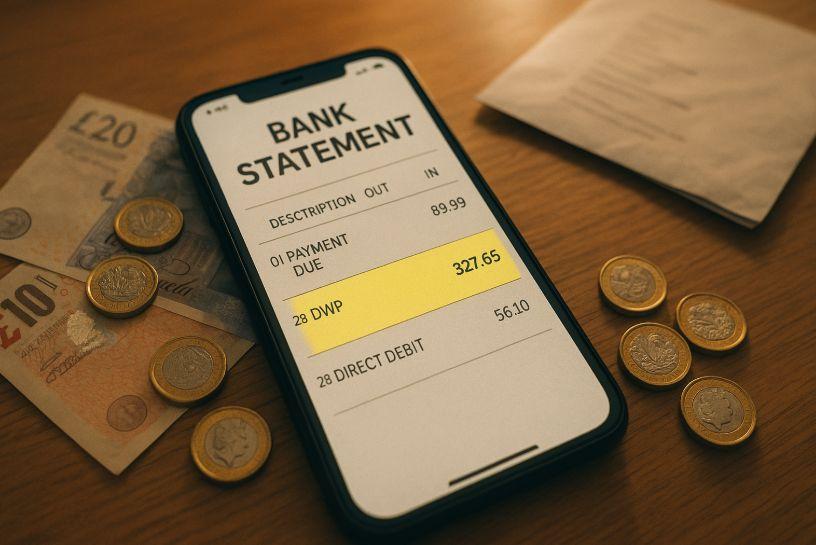
Leave feedback about this